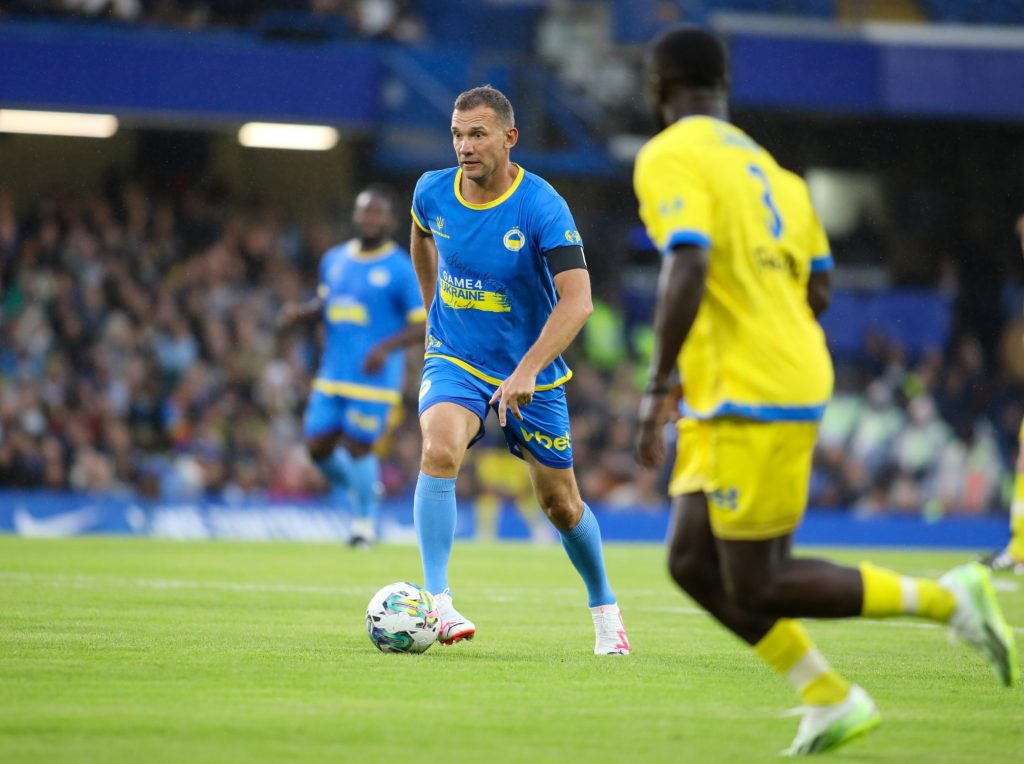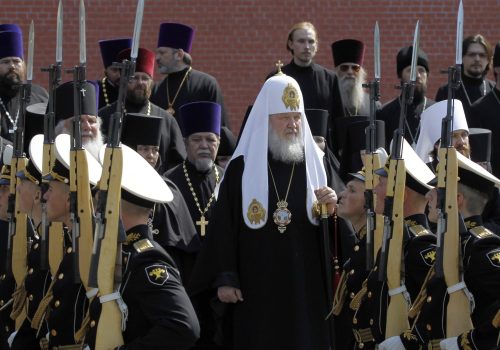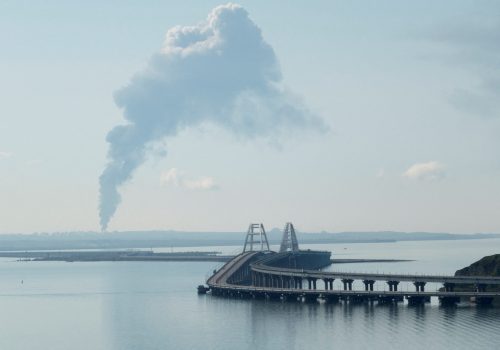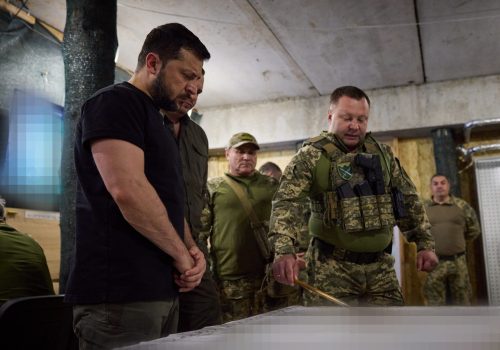Ukrainian President Volodymyr Zelenskyy named Ukrainian soccer legend Andriy Shevchenko as an official advisor on September 26. This appointment reflects the contribution Shevchenko and other high-profile footballers have made toward keeping Ukraine’s struggle against Russian aggression in the international spotlight. At a time when many in Kyiv are alarmed by the prospect of mounting “Ukraine fatigue,” the country’s soccer stars have the ability to reach global audiences numbering hundreds of millions. For example, according to research conducted by Brand Ukraine, the Ukrainian national team is among the most popular Ukraine-related searches on Google.
Former Ukrainian national team captain and coach Shevchenko has been particularly prominent in efforts to raise international awareness about Russia’s ongoing invasion. As an ambassador for Ukraine’s UNITED24 platform since spring 2022, he has done much to highlight the wartime experience of Ukraine’s civilian population and the humanitarian cost of the war.
Shevchenko was instrumental in organizing the Game4Ukraine initiative, an all-star charity match that took place in August 2023 at Stamford Bridge, the home ground of English Premier League side Chelsea, where Shevchenko spent three seasons as a player during the twilight years of his career. The Game4Ukraine charity match raised funds to rebuild a Ukrainian school destroyed during the Russian invasion. Crucially, the event also attracted considerable media attention and helped keep Ukraine in the headlines.
Stay updated
As the world watches the Russian invasion of Ukraine unfold, UkraineAlert delivers the best Atlantic Council expert insight and analysis on Ukraine twice a week directly to your inbox.
As a former Ballon d’Or winner and AC Milan hero who is widely regarded as one of the greatest strikers of his generation, Shevchenko is a natural ambassador. However, he is far from the only Ukrainian soccer player to speak out on behalf of their country since the onset of Russia’s full-scale invasion nineteen months ago. Many Ukrainian footballers currently playing for teams in Europe’s top leagues have been active since February 2022 in efforts to promote awareness of their country’s plight.
In England, Arsenal’s Oleksandr Zinchenko has been particularly vocal, while Everton’s Vitaliy Mykolenko has been outspoken in his criticism of the conflict and the failure of Russian sports stars to condemn the invasion. Other Ukrainian footballers including Ruslan Malinovskyi, who plays for Italian side Genoa, and national team captain Andriy Yarmolenko have been similarly supportive of their country. In Ukraine itself, famous footballers have also been involved in numerous fundraising initiatives.
Recently appointed Ukrainian national team coach Serhiy Rebrov is another prominent figure from Ukraine’s footballing fraternity who has championed the country’s struggle against Russia’s invasion. Rebrov was one of the driving forces behind the creation of the Ukrainian Army Support Fund, and has spoken publicly about his family’s decision to switch from Russian to the Ukrainian language in their daily lives. Rebrov has stated that he has received numerous offers to take on lucrative coaching roles in Russia since 2014 but has rejected them all. “My position is unequivocal,” he stated in summer 2022. “No contact with the country that attacked my people.”
Eurasia Center events

The prominent role being played by Ukraine’s footballers in the information space reflects the country’s rich footballing tradition. During the Cold War, Ukrainian clubs dominated the domestic soccer scene inside the Soviet Union, with standout team Dynamo Kyiv twice winning UEFA’s European Cup Winners Cup. Meanwhile, the Soviet national team relied heavily on Ukrainian talent, with more than half of the squad that reached the European Championship Final in 1988 hailing from Ukraine. The most celebrated football trainer in Soviet history, Valeriy Lobanovskiy, was also Ukrainian.
The Ukrainian national team has struggled to build on this remarkable legacy during the post-Soviet era, but Ukrainian club teams remain among the strongest in Eastern Europe. A swashbuckling Dynamo Kyiv side featuring a young Andriy Shevchenko famously reached the semi-finals of the Champions League in 1999, while bitter domestic rivals Shakhtar Donetsk won the UEFA Cup in 2009 and regularly feature in the knockout stages of European competition. Since the start of the war, both Dynamo Kyiv and Shakhtar Donetsk have played multiple charity games against teams throughout Europe to help raise money for the victims of Russian aggression.
Ukraine’s primary footballing ambassadors remain the country’s national team. After narrowly failing to reach the 2022 World Cup in Qatar, Ukraine is now hoping to qualify for the 2024 European Championship, with the last matches of the qualifying stage scheduled for October and November 2023. The decisive tie is likely to be Ukraine’s match against Italy on November 20.
The security challenges created by the ongoing war with Russia mean that Ukraine’s national team must play its home ties in nearby Poland, where the presence of a large Ukrainian community guarantees packed stadiums and strong support. Each qualification match also provides millions of Ukrainians back home with a welcome distraction from the horrors of Russia’s invasion, while also serving as a reminder to global audiences of Ukraine’s remarkable resilience.
Renat Zihanshyn is a digital marketing strategist, author, and content manager of the R/Z FOOTBALL YouTube channel. Oleksandra Gaidai is a Department of History postdoctoral fellow at American University.
Further reading
The views expressed in UkraineAlert are solely those of the authors and do not necessarily reflect the views of the Atlantic Council, its staff, or its supporters.

The Eurasia Center’s mission is to enhance transatlantic cooperation in promoting stability, democratic values and prosperity in Eurasia, from Eastern Europe and Turkey in the West to the Caucasus, Russia and Central Asia in the East.
Follow us on social media
and support our work
Image: Andriy Shevchenko in action during the Game4Ukraine charity match at Stamford Bridge in London, England (Alexander Canillas / SPP)




